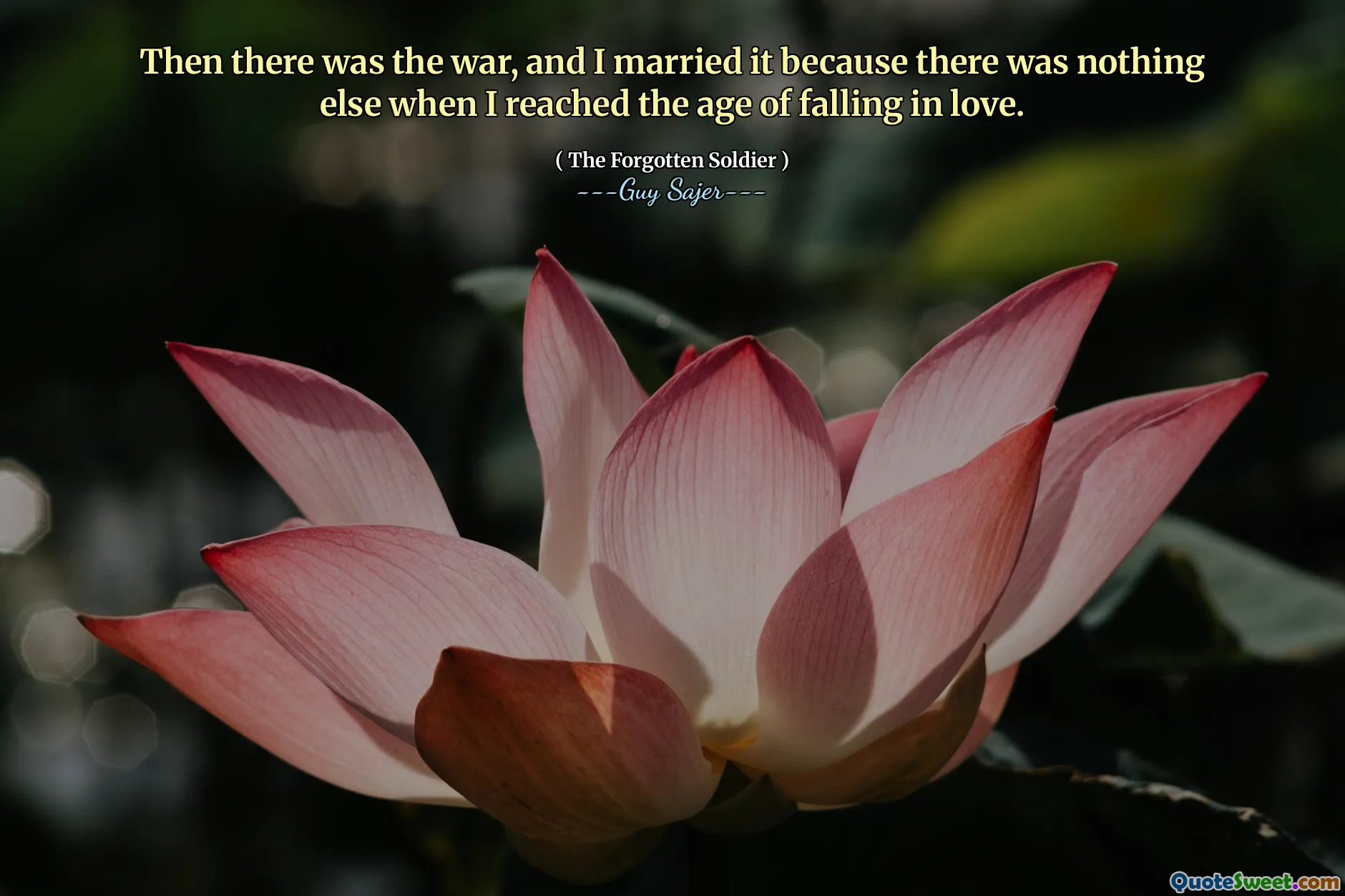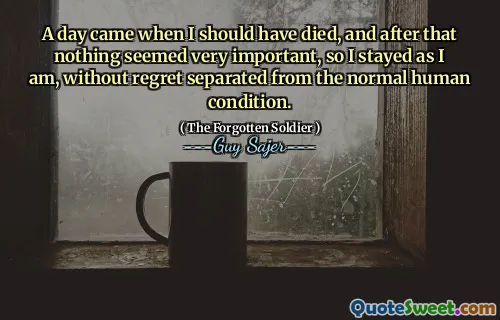
Then there was the war, and I married it because there was nothing else when I reached the age of falling in love.
This quote captures a profound and haunting reflection on the way war can become intertwined with personal identity and emotional experiences. It suggests that, for some individuals, war is not just a backdrop or a recent event, but rather a defining aspect of their existence, almost like a marriage—an unbreakable bond formed out of necessity or circumstance. The phrase highlights how trauma, survival, and the desire for meaning can lead people to embed their experiences of conflict deep within their personal story. In the context of Guy Sajer's personal recount in 'The Forgotten Soldier,' it resonates with the idea that war can shape and sometimes distort our understanding of love, belonging, and purpose. It evokes the complex reality where the pursuit of emotional fulfillment is overshadowed by the chaos and brutality of conflict. Such a statement also speaks to a sense of resignation—a acknowledgment that sometimes life's circumstances, especially during tumultuous times, leave little room for traditional notions of love or peace. Instead, one must 'marry' the war, accepting it as part of one's existence, perhaps because surrendering to it feels more manageable than resisting or fleeing from the upheaval. This stark line forces us to confront the human toll of war, not just in terms of physical destruction but in the emotional and psychological scars it leaves. It invites reflection on the extent to which external circumstances shape inner worlds and how, in times of extreme hardship, people forge bonds—whether with others or with their circumstances—that continue to influence their life's trajectory long after the conflicts have subsided.







